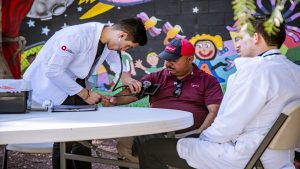
Ingenica Solutions, an IT solutions provider, has announced its collaboration with mobile computer vision experts, Scandit. The partnership brings together its track and trace solutions for the NHS with Scandit’s enterprise-grade barcode scanning and augmented reality (AR) solutions for mobile devices.
Improving patient care
The company specialises in healthcare procurement, supply chain, inventory management, patient costing and back-office operations. The solution is designed specifically to make managing the vast quantities of inventory within the NHS a much simpler task. Ingenica Solutions has now integrated Scandit’s computer vision and AR software into its inventory management solution – 360 IM. The company suggest this will further empower its clients to achieve greater efficiencies and improve patient care.
This integration of Scandit’s AR capabilities into Ingenica Solutions’ 360 IM, creates the next-generation of inventory management technology. This integration is another first for Ingenica. The first inventory management system for the industry powered by computer vision with AR.
AR blending digital elements into reality
It also further augments the Ingenica solution, and creates an inventory management tool for NHS trusts. Augmented Reality blends interactive digital elements which could include visual overlays or other sensory projections into the physical world environment. Real-time information can be displayed over images of physical objects.
The Scandit functionality enables healthcare professionals to scan hospital supplies with any smart device or handheld scanner. Professionals can then view real-time inventory information via AR-overlays – such as product expiration dates and stock levels. This simple, easy-to-use solution automates and connects workflows across many teams, creating significant financial and operational efficiencies in inventory management.
Scandit’s MatrixScanAR capability also enables scanning of multiple barcodes at once. This includes a mix of 1D and 2D barcodes, highlighting specific items with AR feedback on the device. It brings faster, accurate product or asset recognition. Reducing the time clinicians spend searching for products and allowing more time for frontline patient care.
David Ford, founder and CTO at Ingenica Solutions said, “Benefits that advances in digital technology bring to healthcare are considerable. The impact and relevance of augmented reality on the inventory management process in the NHS is immense. Ingenica Solutions continues to support the market with advanced technology for back office solutions in healthcare. Our partnership with Scandit helps to provide best-in-class innovative technology to shape the future of the NHS.”
Adding speed and accuracy

Samuel Mueller, CEO at Scandit said: “Workers in the healthcare sector, particularly in the NHS, are incredibly time poor. New ways are needed to free up staff from inefficient tasks. Our partnership with Ingenica Solutions will help transform inventory management across NHS systems.
“Computer vision and AR technology can inject speed and accuracy into the healthcare sector. This will help reduce human error, improve patient safety and lower costs. This type of technology will become the norm in digital healthcare for decades to come.”
This is not Scandit’s first foray into the NHS. The company provides software-based data capture engine for Leeds NHS Hospitals Trust successful Scan4Safety project which started in 2018.
Enterprise Times: What this means for business?
Augmented reality is often seen as a tool to support retailers. Gartner suggested that 100 million consumers will shop in augmented reality online and in-store by 2020. However, the real adoption of AR appears to have been in other sectors, including healthcare. Scandit recently announced expansion of its international healthcare activity and advancing patient care with low-cost mobile devices and computer vision.
The company’s piloting of AR to support the NHS’s inventory management system is an innovative direction for the technology. The NHS remains a cash-strapped public organisation. By putting scanning software onto mobile devices, healthcare organisations can replace dedicated scanners and make significant cost savings on hardware and maintenance. Analysts suggest substantial efficiency improvements are also gained from the increased mobility and high performance of the software. Hopefully, this will be a win-win situation for both the NHS and its partners.

























